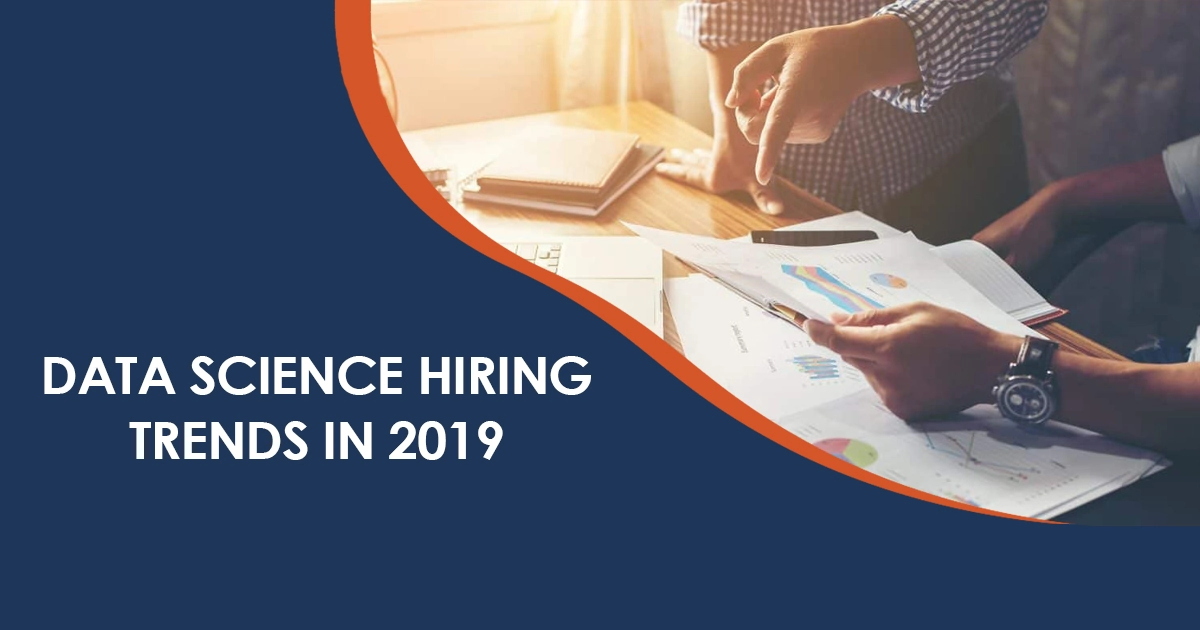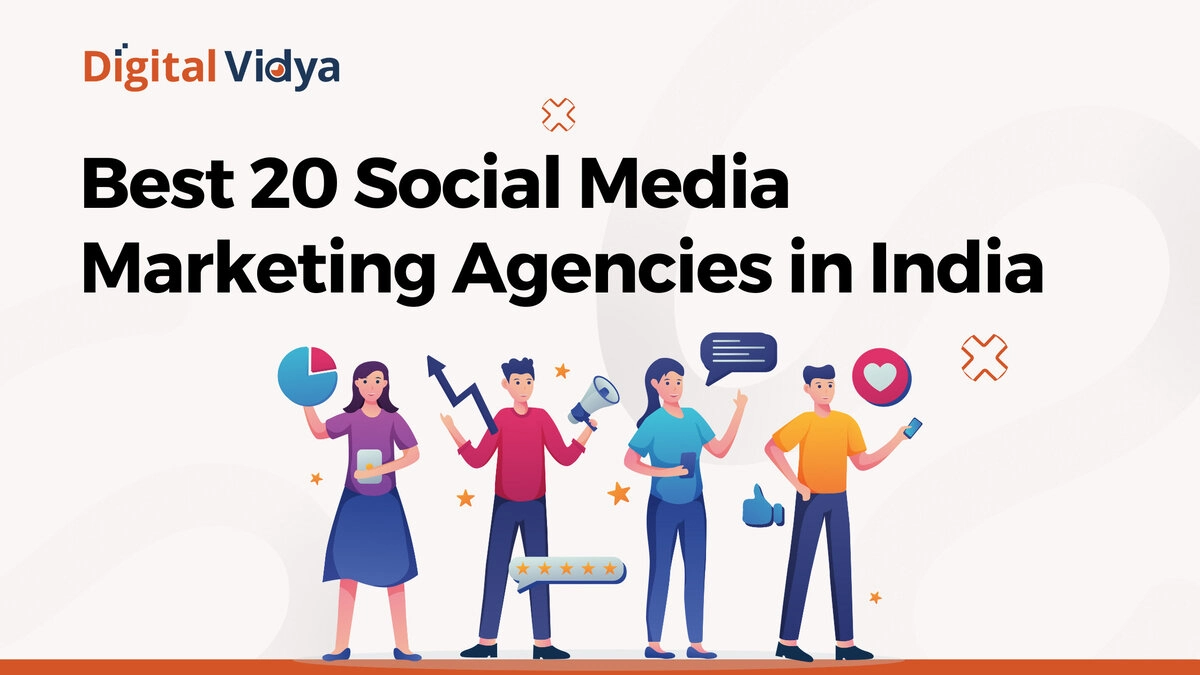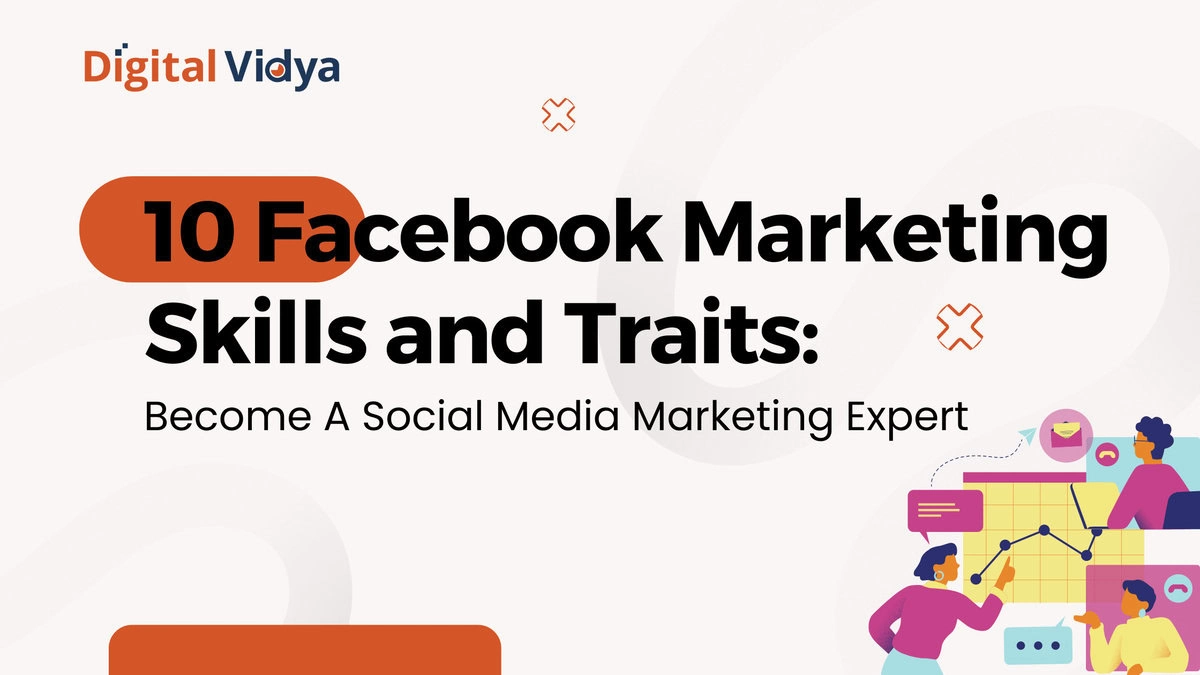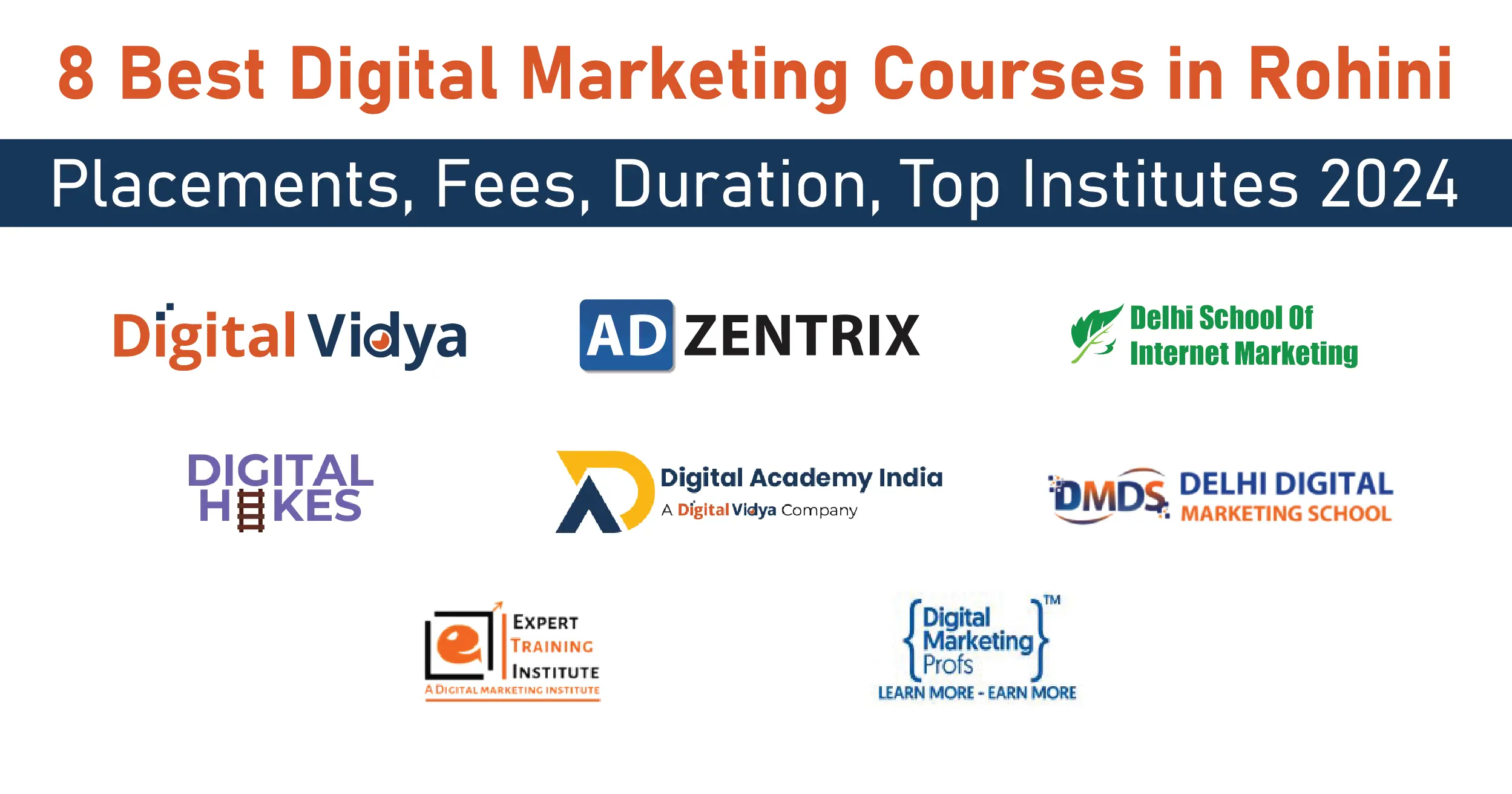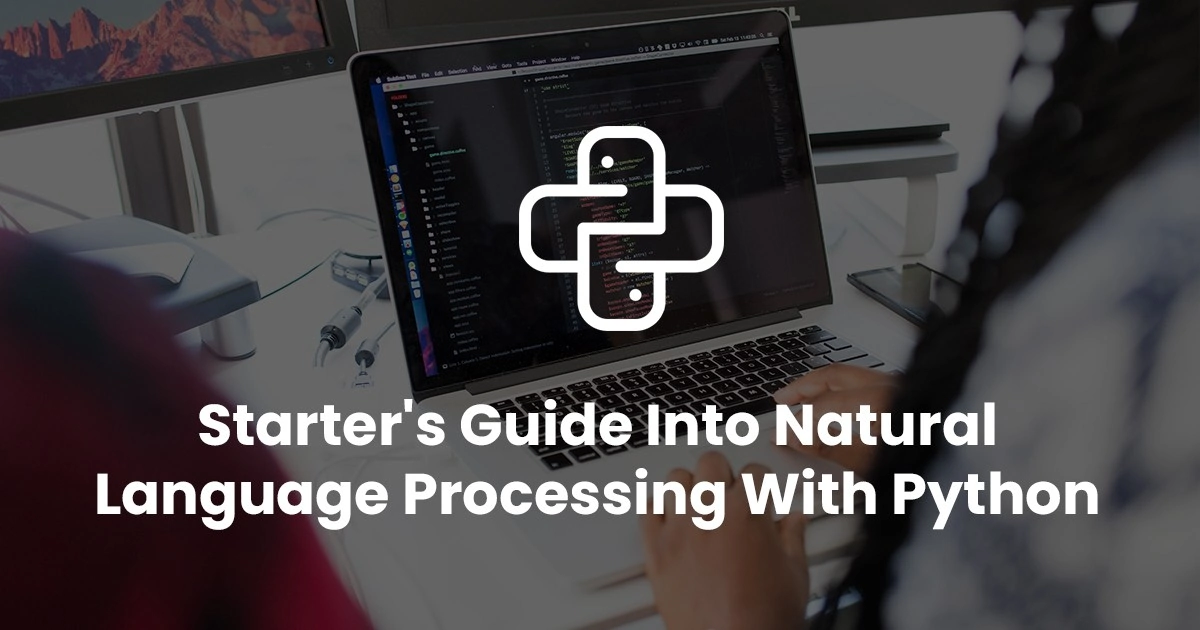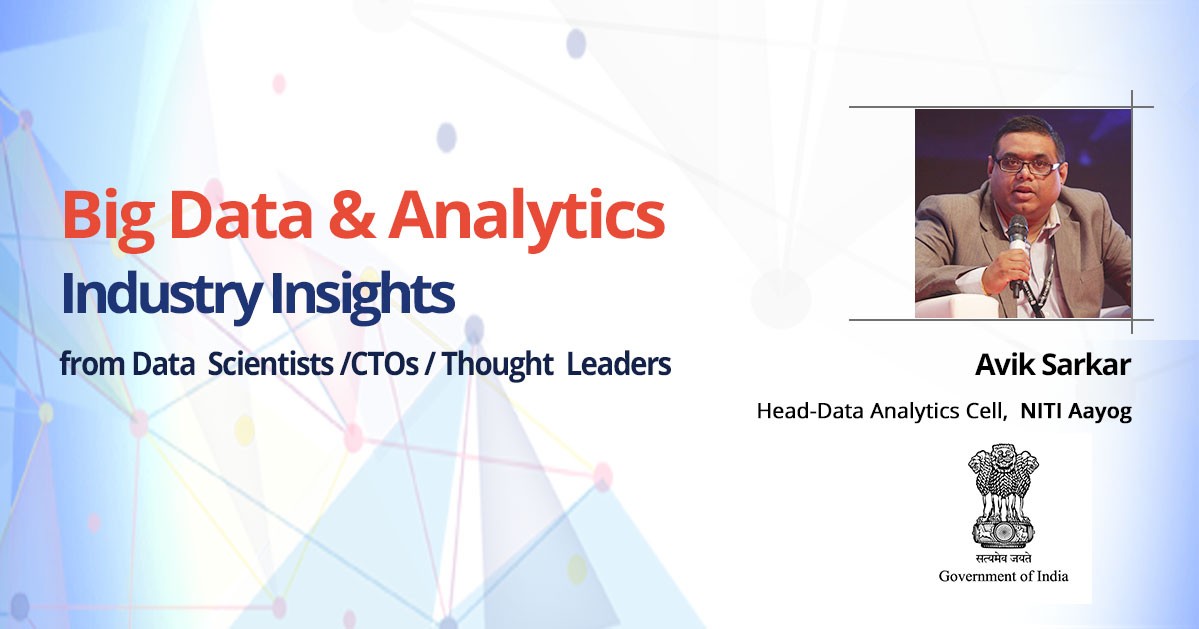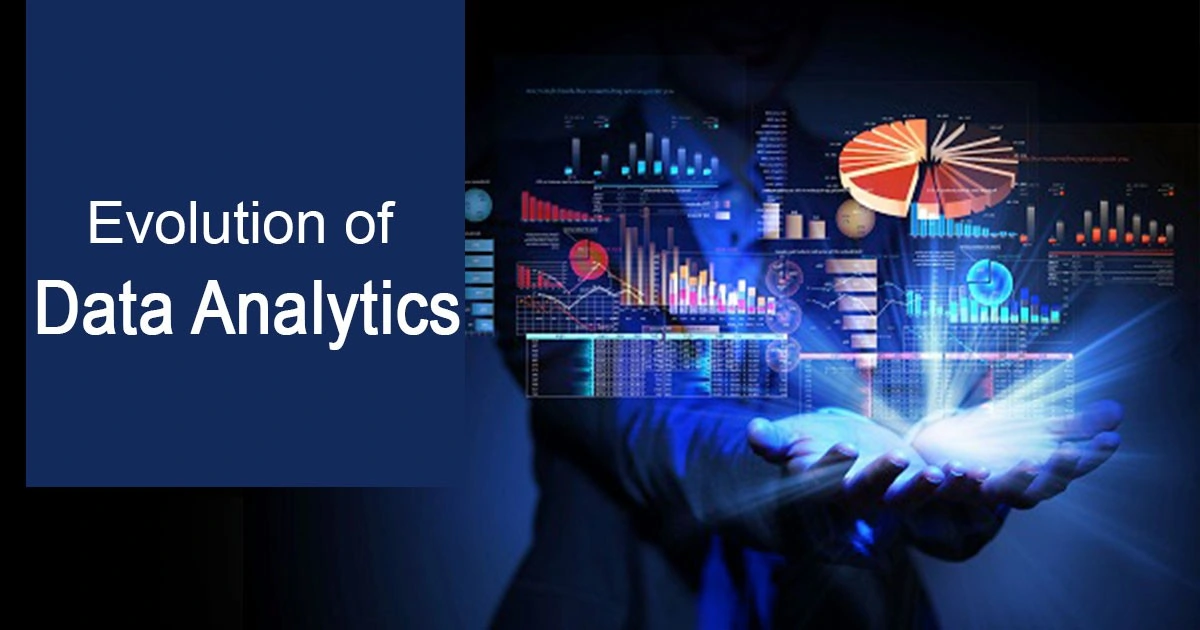Data Science Hiring Trends 2019
The revolutionary growth of Digital Landscape not only requires professionals with strong digital skills and expertise but also looks forward to hiring people who are passionate about technology. Data Science is everywhere and almost every business uses some of the other Data Analytics tools. The time changes with new introductions each day. Let’s learn about Data Science Hiring Trends.
“Learning from data is virtually universally useful. Master it and you’ll be welcomed nearly everywhere.” – John Elder
Well, the increased importance of data science has opened a number of career opportunities for people who are highly tech-savvy, good with numbers and looking for job opportunities in the technical & analytical sphere.
Despite effective & well-formulated efforts, the gap between the demand and supply in the Data Science landscape is still visible. With an expectation to bridge this gap, we have compiled the most appropriate Data Science Hiring Trends in 2019.
Let’s have a look at what the industry leaders have to say about the Data Science trends to watch out for in the year 2019.
1. Ramasubramanian Sundararajan, Head of AI Lab, Cartesian Consulting
(i) Machine Learning:
With the increasing interest in artificial intelligence, I believe that sound knowledge of machine learning will become a more or less mandatory requirement. Personally, I feel that strong knowledge of statistics ought to be mandatory as well, in most cases but recruiters will certainly look for ML on the resume. This expectation will not be restricted to coursework.
Most applicants would have done at least one course in the area, either online or in college. What will differentiate good applicants is their track record in usage. Good projects can make a huge difference.
(ii) Data Engineering:
As organizations grow in their analytical maturity, they will find themselves requiring much better data infrastructure to support the complex systems they’re building. Data engineering will be the critical bridge between data science models and data science-driven systems.
(iii) The Growth of Data Science Adoption:
This is a tricky one, but relevant. The growth of data science adoption within organizations will depend critically on data science awareness within managers, rather than just on data scientists’ building models.
This is especially true in traditionally run organizations where data-driven decision making is not central to the culture, and therefore represents a huge opportunity for value addition. However, the pace of growth of the field around the world will mean that awareness among managers will be much sought after as a skill set.
2. Akshay Sehgal, General Manager, Data Science, Reliance Industries
(i) Demand for Stronger Maths Basics:
Till now, the HR industry followed domain first hiring as they do in other verticals. “Has the guy worked on recommendation engines? If yes, then hire them.” But is so turns out that experience of building ‘a recommendation engine’ isn’t enough as every problem and dataset is unique.
No one solution will always work. So someone who has the knowledge of statistical modelling, collaborative filtering & neural networks should be able a build a larger variety of solutions to the recommendation engine problem, without having built one before.
(ii) Python for All:
R & SAS are slowly losing traction in the products industry due to the lack of production-grade solutions. Meanwhile more and more python developers are comfortably transitioning to data science libraries and toolkits. More demand, more supply. In 2019, python will be much more popular in the hiring industry than before.
(iii) Focus on Competitive Data Science:
It’s quite a common trend that data scientists who work on major industry problems usually are active in the competitive data science scene. Whether the hackathons help train such data scientists or people who are extremely passionate about the subject end up participating in hackathons, either way, its getting clearer that there is some correlation to the two. We should see more and more JDs include hackathon experiences as a good-to-have.
3. Mohit Bansal, Principal Data Scientist, CreditVidya
Data Science field is still the most sought-after field and the gap in demand and supply is quite visible. Here are my thoughts on how it will look like in 2019
(i) Focus on Practical Knowledge than Interviews:
With the ever-changing landscape of Data Science, recruiters will focus on practical knowledge. Your profile on Kaggle, GitHub will be asked for as primary information during the recruitment process.
Companies will also ask you to build an ML model on given data to solve a problem and explain the logic, which is basically a case study approach.
(ii) Data Engineering Skills will be Asked For:
Though there is always a debate on this topic whether DE & DS operations should be kept separately or not. But with an increasing amount of data and models getting deployed in the production environment, it is essential that a Data Scientist knows about the Data Engineering aspects as well.
You don’t have to launch a server on your own or put a model into production but when you are building the solution it is good to keep scalability and potential production issues in mind
(iii) Python & Scala will Beat R:
Though R is a powerful language and getting updates regularly, but majority of the companies are moving towards Python for model building, given its readability and less complexity. There are pretty good packages in Python like Scikit Learn which make the life of a data scientist very easy.
Apart from the above-mentioned points, there are a few basic requirements in Data Science hiring which will still be relevant during next year, e.g.,
Visualizations: For a data scientist visualizing the data in most suitable format is the key, if you can’t put a good visualization to your insights – There are fewer chances that it will fly with business folks
Formulating Problems: Business problems are vague, e.g., Your CEO might come in a room and say that “I Want to make my customers happy as word of mouth is the best
a marketing tool, help me with that” As a data scientist you should be able to convert the business statement into a Data Science problem.
4. Avik Sarkar, Head-Data Analytics Cell, NITI Aayog, Govt. of India
Increased prominence of and huge recent interest in Data Science, Artificial Intelligence has led to a large number of youth and experienced professionals looking to get skilled in these emerging technologies. Along similar lines, there are a large number of existing and new institutes coming in to offer courses to fill up this demand.
Having directly involved in several advising institutes on developing these course content and involved in imparting these courses across various institutions, I see a lot of commonality in the content of these courses. These courses often start with some basic introduction of mathematics/statistics, followed by hands-on visualization moving onto aspects of prediction and artificial intelligence.
Often there are a few domains-specific analytics that is covered in these courses like sales analytics, human resource analytics, marketing analytics, financial analytics, etc. All those professionals taking these courses or studying data science would like to refer to themselves as data scientists, so do they end up doing similar activities in their next job?
These courses sure provide the candidates taking the courses a wide overview of the data science landscape, but is this broad information relevant to get these candidates to get a data science job?
Now, I look at three broad roles that a data science professional needs to be performed on a regular basis as per the industry recruits on a regular basis and highlight the key skillset that they need to acquire to get the data science job.
(i) Data Science Developer (Algorithm):
Several industries require that the data science algorithms and techniques are unique to their particular need or the algorithm needs to be embedded within their code for efficiency and performance. Here the algorithms run in real-time to provide the intelligence or a research firm looking to apply novel algorithms for their domain.
Here, using off the shelf libraries or algorithms are often not enough and the person needs to write code for the entire algorithms. This would indeed require a thorough and deep understanding of the underlying mathematics/statistics and above-average programming skills to encode the mathematical constructs in developing the algorithms. These folks might work closely with the domain experts, still need to have a fair understanding of the underlying domain and dynamics of the data.
(ii) Data Science Engineer:
This person would have a huge range of experience across various tools both for data visualization and predictive analytics. Ideally, the person would spend his day extracting data from various proprietary databases often using big data tools and use this data to create visualizations and models. The person might also spend a considerable amount of time in the various activities related to data extraction and data cleaning.
Often activities might also involve tasks like data annotation or data tagging for the purpose of model development. Such roles are quite prominent in the services sector and this person might be working on one or more client projects at the same time. Domain knowledge about the data is based on an occasional meeting with clients and the client representative working on the client site. This role requires a good understanding of the underlying tools, programming in those tools and their usability in various scenarios.
(iii) Data Science Consultant:
This person works very closely with the client or understands the domain and have equal expertise on how data science can be used to solve problems in that domain. As a consultant, this person acts as a bridge between data science and the domains, formulates the problems in that domain so that they can be solved using data science methodology.
Hence this position is very crucial as these blends in the business needs of that domain with the requirements of data science. These professionals often have to take back the findings from data science to the business and hence explaining the value addition due to the use of data science, followed by the next step of business actions to get the full value out of the data science-based insights.
All these three roles described above are very important in data science and there is adequate demand for all of these roles in the industry. Individual candidates are in a better to choose one of these based on their liking for deep programming orientated career vs. business-oriented career.
It’s best if the individual can choose one of these early, which would give them ample time to specialize in that area, thus increasing the odds of getting the dream data scientist job – that has been named as the most promising job of the 21st century!
5. Shivaram K R, Co-Founder and CEO, Curl Analytics
Data Science is an emerging field and there is a great demand for candidates who have expertise in machine learning and deep learning. In 2019, the demand is going to further increase because of the AI-based products which are going to hit the markets.
Demand for data science is driven by industry requirements. Today there is a huge requirement in health sciences, autonomous vehicles, precision agriculture, smart security, banking and financial industry, manufacturing and in many other fields.
Gone are the days where we needed people with business analytics skills. We have products in the market which can automatically generate low-level analytics reports. The information in the databases can be analyzed and the insights are drawn automatically. Hence, we will not be needing people who build basic models and visualizations.
In the coming years, we will have a greater demand for people who have strong machine learning and deep learning skills. Here are the top 3 trends according to me will be big in the market:
(i) Traditional Machine Learning (ML):
ML is a part of data science where one builds the models directly from the data. It is a very powerful tool. Machine Learning is in great demand. We need Machine Learning expertise to build forecasting models, clustering, classification of data, etc.
A person with domain expertise and has a thorough understanding of Machine Learning can do wonders with data. For example, a doctor who has several patient records and knows Machine Learning can do feature selection correctly, interpret the output of the model and also validate if the model makes sense all by herself.
(ii) Deep learning (DL):
Deep Learning is an extension of Machine Learning. Deep Learning models are inspired by how the brain works. Today all the hype of data science is because of Deep Learning as they can learn very difficult problems which till now we assumed machines were incapable of doing. There are models which can imagine, interpret real-world data such as video, music, and text, there are also models that are creative!
The applications are limitless and so is the demand. There is a great demand because of autonomous cars, face recognition, text to speech conversion and vice-versa, etc. Deep Learning is the current requirement for data science jobs.
(iii) Reinforcement learning (RL):
Reinforcement Learning is a kind of Machine Learning model that teaches agents to solve tasks using trial and error. It is a very powerful technique when mixed with Deep Learning.
The autonomous cars, robots, and bots in games use Reinforcement Learning. It can be used for simulating and testing various scenarios. Reinforcement Learning is the future of data science.
One has to develop expertise in the above-mentioned fields to be relevant in the data science market.
6. Ajay Ohri, Data Scientist, Sapient AI & Vikas Mittal, Data Scientist, 360 Digital Transformation
In this article we examine in an objective and unbiased manner, our frank opinions on data science hiring trends in 2018. During this year we have talked, interviewed, interacted with many data scientists from beginners to experience people.
(i) Knowledge is More Important than a Certificate or Diploma:
Also known as the certificate that gives better projects and is more hands-on, is going to create better students than code-heavy curriculums. Let’s face it- there are many many teaching companies in data science. These companies advertise heavily, get many reviews some of which are digital marketing and they offer different permutations and combinations of R, Python, SAS, Tableau, Excel-based curriculum.
It is easy to import an algorithm in scikit-learn, fit to train and predict to test data. What is more important is what are the advantages, disadvantages of using that algorithm. Same for knowing how to create a model and pickle versus actually knowing how to put into production using pickle and flask in Python (among many options). In statistics, you have shown to know when to use t-test (compare means) versus when to use the F test (compare variances)
(ii) Hackathons are the Real Deal:
Also known as real data scientists use hackathons to practice for data science jobs and interviews, while people with wishful thinking on becoming data scientists just pay a few lacs to private institutes, get a certificate or diploma and then face trouble getting jobs.
Kaggle, Github and Hackathons are no longer optional- they show focus, dedication, and initiative besides improving coding skills. There are many institutes who give training to learners in data science, who use kaggle datasets as complementary to their code and theory pedagogy. These institutes have a significant advantage in the coming years than scripting teachers who create code monkeys.
A big advantage that you get from realistic datasets in hackathons that they force you to build data pre-processing and feature building skills. These skills cannot be taught in iris, mtcars, Boston and German Credit, Adult and Wine datasets alone as they are perfect in data completion with no missing values which are rarely the case in real life.
(iii) Data Scientists with Practical Skills Continue to be Huge in Demand:
Also known as AI is the new skill over just data science skill. Just like data science skills became the hot skills over business analytics skills a few years back. Hot new skills are
- Deep Learning
- Operation Research and Optimization
- Putting Models to Production
- Chatbots
- Text Mining using Web Parsing of Data
- Social Network Analysis of a large data
- Ability to write complex SQL especially for Hive in Big Data
- Ability to handle out of memory data (ie 32 GB data in a 16 GB laptop)
- Using cloud for data science
- Using NoSQL databases like MongoDB
Lastly, Python is finally pulling over R in hiring & SAS continues to have a say in hiring.
7. Vijay Srinivas Agneeswaran, Senior Director of Technology, SapientRazorfish
The top 3 trends in data science hiring are likely to be:
(i) Renewed Focus on Deep Learning:
Both candidates and companies shall be looking at deep learning as a mandatory skillset, not a good to have, as was the case earlier. Most companies shall be looking out for candidates who have experience using deep learning in real-life projects and not just know it in theory. Candidates shall also be starting to use deep learning in real projects, starting from Kaggle contests.
(ii) Sharpening of the Divide Between the Machine Learning Researcher & Applied Machine Learning Engineer:
The former is the one who can build a microwave oven, while the latter is the culinary expert who can cook wonderful recipes with the microwave. Most companies may only need applied ML engineers, not ML researchers.
(iii) Companies will also Start Focusing on Hiring Data Scientists with Production Experience:
Taking ML models into production and being able to understand how to manage ML models (model management), use docker/Kubernetes/Terraform to make one-click deployment plus a deep understanding of the cloud environments (GCP, Azure or AWS).
Final Thoughts
Data Science hiring trends are followed by numerous opportunities across the world and all the credit goes to the increasing popularity of technology and data-oriented decision making. Companies are looking forward to hiring professionals who can understand as well as analyze data.
Since now you are aware of the Data Science Hiring Trends, it is time to make the most out of it and elevate your career as a Data Scientist.
Do you want a promising career in Data Science? Join our Data Science Master Course. Be knowledgeable of Data Science Hiring Trends with us and grab the opportunities on the way.
